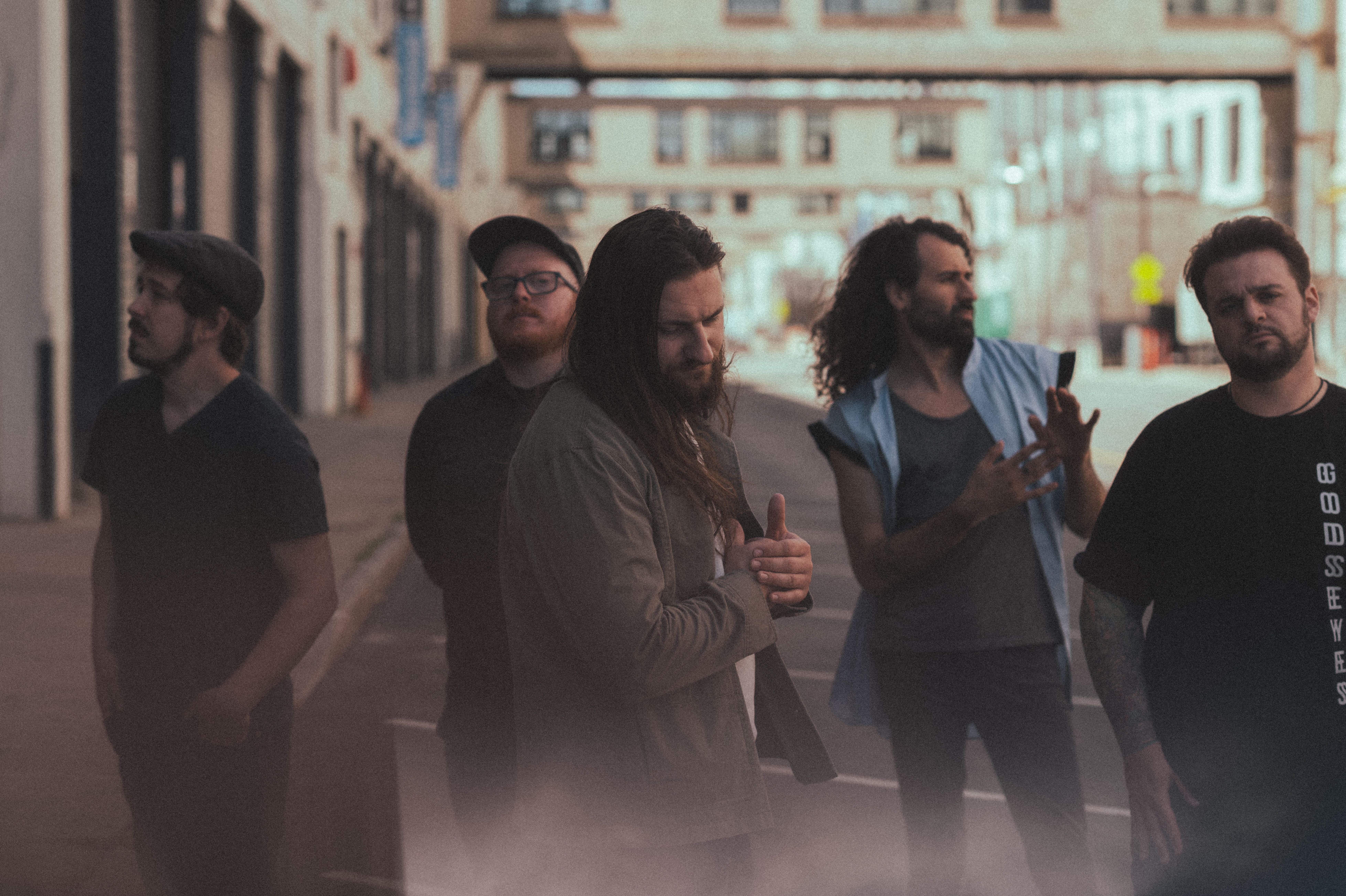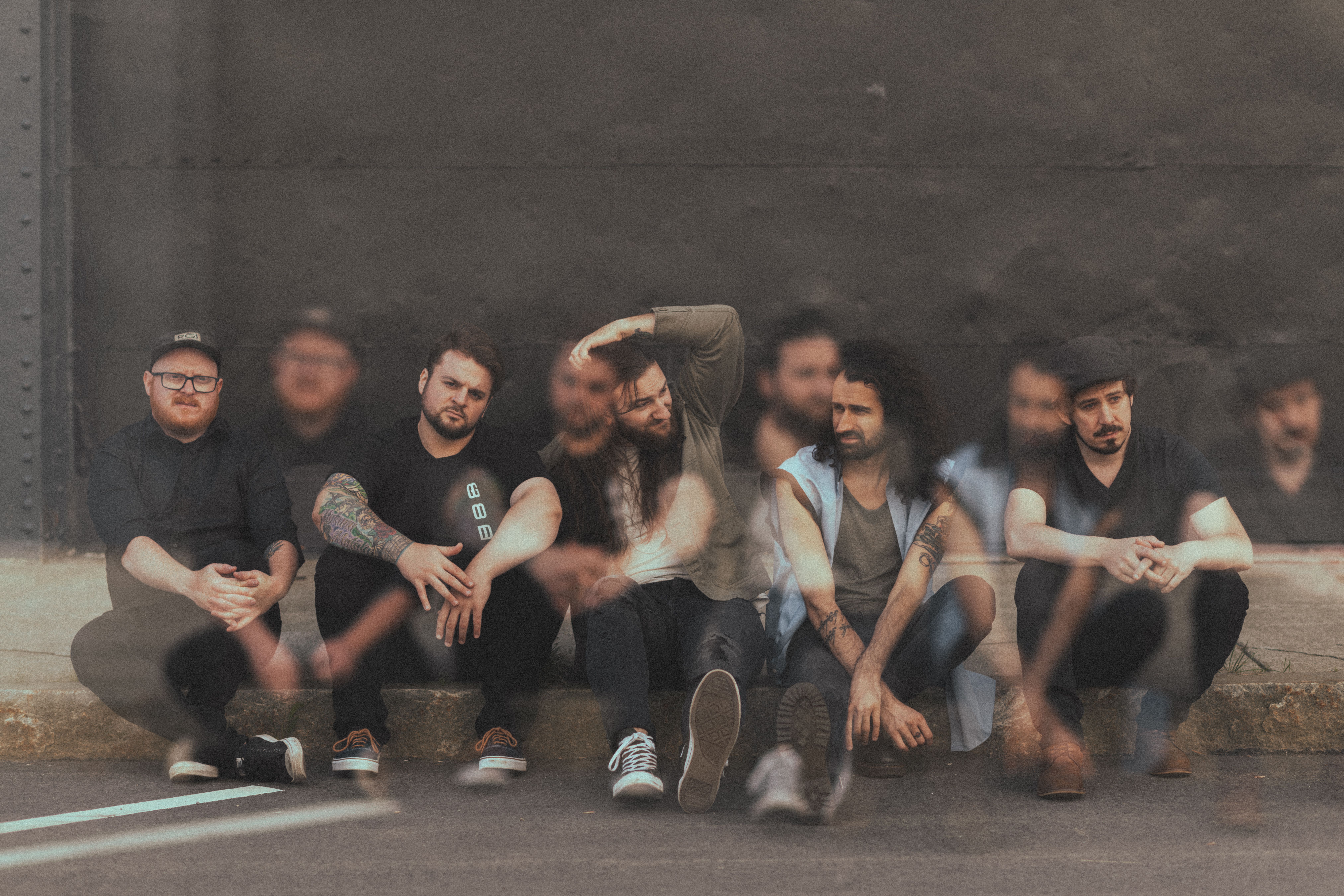
(Photo credit: Adam Parshall)
Post-hardcore groups aren’t exactly known for having the most uplifting songs, but Actor/Observer’s new single “Fool’s Gold,” the lead single off their upcoming album Songs For the Newly Reclusive, is a particularly upfront and urgent listen for anyone who is a fan of the Boston music scene. The song is predictably heavy, though it begins with a somber and echoed guitar line. The vocals switch between screamed and sung – though mostly sung, to emphasize the song’s critical lyrics. “Gold” is about the increasing costs of living and disproportionate living standards across Boston – and the country’s major cities – that are rapidly killing the arts.
The song is not exactly subtle, as the lyrics are peppered with phrases like “We thought we could make a change / But it’s too little too late / This town can’t be saved,” as well as “No one said you had to stay here” and “Those who stay will continue to bear the weight.” The lyrics are emotional and direct, written to a city where art-oriented individuals are departing in favor of tech bros at a seemingly one-to-two rate. The song hits for anyone like me who has watched multiple friends emigrate to other cities to chase a different arts scene. The song’s lyrics are delivered with a genuinely passionate fury, matched by urgent music that switches from regret to bitterness on a dime.
The song could not come out at a more critical time. With the closures of historical live music institutions like Great Scott and the impending demolition of The Middle East, it’s impossible not to feel like the arts scene that gave Allston/Brighton and neighboring pockets their reputations is collapsing inwards on itself. There are fewer venues for the local and national up-and-coming bands, and more vacant luxury apartments, all under the watchful eye of both Harvard and landlords free to price out anyone with no rent control in place. Bands of any fame level could always rely on Boston as a safe, reliable stop to find frenzied fans, but that time is increasingly coming to a close. And it isn’t just Boston – New York is years into pricing out it’s citizens, and Austin is rapidly falling to some of the country’s most soul-sucking corporations. It isn’t even that the local arts scenes are being displaced – they’re being systematically disseminated, faster than real time.
Being a successful touring artist has always been the ambition of the many but a viable occupation for the few, and with a dangerously combustible mix of inflation, rising food & gas costs, venue closures and city-wide gentrification, that “few” dwindles by the day. One needs to look no further than the location of Great Scott, Allston’s most cherished music venue that has now sat gutted and empty for two years, or towards the Seaport district, which until a few years ago was a cozy, available section of the city now lined with the pricy gastropubs and glossy, glassy skyscrapers of interchangeable tech companies.
I spoke with guitarist/vocalist Nick Grieco and vocalist Greg Marquis via e-mail about the song and its larger themes.
Allston Pudding: What do you see as the biggest threat to the local/national art scene(s)?
Actor|Observer: Locally, the biggest threat is lack of affordable housing, lack of accessible artist spaces, and lack of meaningful support, resources and funding for the arts. It’s no secret Boston has been facing an ongoing housing crisis for years, along with most major cities in the U.S., and the most vulnerable communities impacted are immigrant, POC, working class, and creative communities (among which there is so much overlap). Cities love to invest in the “appearance” of being a cultural hub without actually investing in the lives of the people who make it that way. So until we can actually prioritize the material needs and economic health of those who contribute to the vibrancy of our cities, the arts and our most vulnerable communities are going to keep getting pushed out and painted over.
AP: Which venue closure has hit you the hardest (local or anywhere)?
A|O: Great Scott. Hands down. Boston has very few small-to-medium sized venues as it is, so losing that spot has been a huge blow to the local scene. Not only was it a beloved local haunt, it was a crucial space for touring and developing acts. Boston loves to tout the big national acts that came from here, but where do you think those acts got their start? In venues like Great Scott! Local artists need those in-between venues to grow. I mean, our last record release show was at that venue. And the one before that was T.T. The Bear’s which also closed soon after… Haha maybe it’s us. Look out Rockwell! All kidding aside, I know GS will live again someday once a new location is found, but while we wait, the impact of losing that space continues to be felt by our community.
AP: What do you think about the new bigger venues, like Roadrunner & MGM Music Hall?
Do you think they’re good for the scene or do they just give in to gentrification even further?
A|O: I know that Roadrunner has received a lot of criticism for being a gentrifier tool and the knee-jerk reaction of many in that school of thought is “We don’t need this,” but the big picture is much different. Roadrunner (being a part of the AEG/Bowery family) was designed and is run by the same people who run The Sinclair, which is already regarded as one of the best venues in the country. Because of that reputation, many national touring acts elect to book out multiple nights at The Sinclair instead of one night at House of Blues or The Palladium (Worcester). The existence of Roadrunner applies a necessary healthy competition for large general-admission venues and very much puts Boston back in the running to be regarded as an “A-Market” destination city, which it has not been for quite a while. Simultaneously, it opens up the calendar at The Sinclair to potentially be a more nurturing force for the local scene as a larger rung on the ladder that can still host mid-career local acts. Overall I think Roadrunner is a strict positive for Boston Music as a whole, especially when you consider all of the jobs it has created for music industry professionals from our local scene. As far as MGM Music Hall goes, I think they’re appealing to a much different clientele, much like the entirety of Fenway, which was lost to gentrification long ago. If there’s anywhere for a space like that to go, it’s there.

AP: The lyrics say “this town can’t be saved,” do you feel that’s true for Boston? What would need to happen to revitalize things?
A|O: It’s funny, I have thought a lot about that line in particular since we wrote this song because I know how pessimistic it sounds. It’s not meant to be a definitive proclamation about Boston per se, but more so an honest expression of frustration and hopelessness that I know myself and many others have felt at one point or another while living here. Over the years I’ve watched venues close, rents rise, bands break up, friends move away, artist studios get demolished and turned into luxury apartments, and the hits just keep coming. This fight or flight response kicks in and after a while, it can feel like an endless uphill battle where the odds are forever against us. I know hopelessness doesn’t win the fight, but the feeling is real and deserves to be expressed. Once we can acknowledge that, then we can recognize the dire urgency of the situation and work toward a solution together. For the past 5 years or so our members have gotten involved with local civics meetings via Artist Impact, writing to city councillors, protesting harmful developments, voting, organizing, educating, and raising awareness of various creative and civic organizations like the Dorchester Arts Project, the Allston Civics Association, Abundant Housing MA, and so on. There are so many groups doing great work to combat gentrification and support the arts, but there is always a need for more folks to get involved, especially from our music scene, either by showing up to community meetings, donating, or simply elevating these topics in public discussion. And yes, call or write to your city councillors and share your views with them. That’s what they’re there for!
AP: What are some of your favorite local bands to play with, or best local shows you’ve played?
A|O: Move is an awesome local band really embodying the spirit and purpose of hardcore that’s been missing in Boston for a while. They’re playing with us on 11/9 at The Rockwell for the hometown date of our record release tour, along with Moss Tongue who we also love, awesome grungy alt rock shoegaze band from Boston. Our friends and family in Girih have a new record coming out next month, and they are easily one of the best live bands I have ever seen or heard. Valleyheart, Dreamwell, Inspirit, Oldsoul, Lesser Glow, Zip-Tie Handcuffs, all great bands we love and hope to play with again next year. Some up-and-comers who have really been shining are Please 2003, Trash Rabbit, Olivia Sissay, and Pet Fox, amongst others.
AP: What are some of the other themes across the album and/or influences that went into the songwriting on the rest of the album?
A|O: As the title implies, it has a lot to do with becoming less trusting, less open, and ultimately less interested in being around other people. It’s a shift I started to notice in myself over the years after being hurt or let down by so many people in my life, but also as I began to develop a better relationship with myself and with being alone. As I’ve gotten older I’ve become more introverted and disillusioned with the world, especially in recent years seeing how cruel, selfish, and downright terrible people can be. Then the pandemic hit and the fear of being around others became that much more literal. As a band, we spent most of 2020 separated from each other just trying to keep our sanity and lives in tact, so when we were able to finally get together and start writing again, the themes I had been writing about had a much more profound weight to them for all of us, and I think they will for everyone else too.
The song can be found below. Songs For the Newly Reclusive comes out on November 4th, with six more songs just as impassioned and penetrative as “Fool’s Gold” is.


